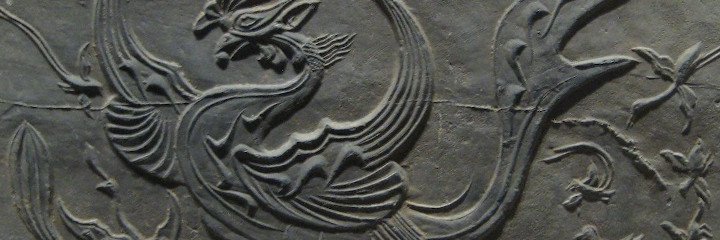
Xuanpin
孟孫陽問楊子曰 有人於此 貴生 愛身 以蘄不死可乎 The handsome young man asked Yangzi, "What do you think of people who love life, especially their own life, and seek immortality?"
曰理无不死 "There's no such thing as immortality."
以蘄久生可乎 "Is it possible to extend life, then?"
曰理无久生 "Life-extension is nonsense too. 生非貴之所能存 身非愛之所能厚 Loving life doesn't mean you'll survive. Coveting life doesn't make you healthy. 且久生奚為 And what do you get for living so long? 五情好惡古猶今也 四體安危古猶今也 世事樂苦古猶今也 The five senses turn from pleasure to pain, the four limbs from fit to frail, a life's work from joy to sorrow. 變易治亂古猶今也 既聞之矣 既見之矣 既更之矣 Out of touch with changing times, you've heard it before, seen it before, done it before. 百年猶厭其多 After a hundred years, you're sick and tired. 況久生之苦也乎 Such a bitter reward."
孟孫陽曰 若然 速亡愈於久生 則踐鋒刃 入湯火得所志矣 The young man replied, "When you put it like that, dying young is better than getting old, so I might as well just take this knife and slit my own throat, fall into the fire and get it over with right now."
楊子曰 不然 Yangzi replied, "That's not what I'm saying at all. 既生 則廢而任之 You're alive, so surrender to life and embrace it. 究其所欲 以俟於死 Want what it gives you so you're resigned to death. 將死 則廢而任之 You're going to die, so surrender to death and embrace it. 究其所之 以放於盡 Let go when it takes you so you're relieved of your cares. 无不廢 无不任 There's nothing that doesn't give in, nothing that doesn't hold on. 何遽遟 速於其閒乎 Why hurry or delay the comforting call?"
Notes
孟孫 appears as a student in other texts, but only in Liezi as 孟孫陽. In any case, I take this passage as elder Yangzi's advice to a handsome, healthy young man as they chat by Yangzi's fire.
I started looking at this passage because it shares the term 貴生 with chapter 75 of the Daodejing. I'm guessing that these characters, along with 愛, 身 and 厚, are part of the vocabulary of immortality (不死) and life extension (久生).
In 以俟於死 vs 以放於盡, if 俟 and 放 are antonyms, bind and release, and 死 and 盡 are synonyms, does the couplet express something like, Resigned to death, liberated from destruction?
Xuanpin is 玄牝 of chapter 6 of the Daodejing. I was thinking of the last characters of the poem, 其閒, as the welcoming ease and comfort of 谷神, the valley spirit, the female principle of Daoist moral physics. A phoenix seems a fitting symbol.